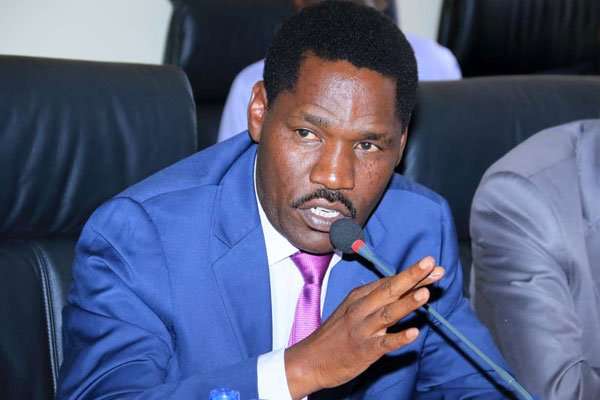Kenya’s media industry is reeling from a fresh financial setback following a directive by the Betting Control and Licensing Board (BCLB) banning all gambling advertisements across all media platforms, effective immediately.
The 30-day ban, announced by BCLB Chairperson Jane Mwikali Makau, applies to television, radio, print, social media, SMS, outdoor billboards, branded transport, influencer campaigns, and celebrity endorsements. The crackdown follows concerns over the rising number of betting-related advertisements, particularly during the watershed period of 5:00 AM to 10:00 PM, which authorities say exposes minors and other vulnerable groups to gambling addiction.
BCLB further criticised gambling operators for falsely presenting gambling as a viable investment or a shortcut to wealth creation, warning of the broader socioeconomic risks this portrayal brings.
“All gambling advertisements and testimonials must be suspended with immediate effect for a period of 30 days,” said Makau. She added that all future advertisements must be submitted to the Kenya Film Classification Board (KFCB) for pre-approval.
This ban comes at a time when Kenya’s traditional media outlets are already grappling with dwindling advertising revenues and shifting consumer habits. Privately owned media houses, which have heavily relied on gambling advertisements to stay afloat, are expected to suffer the most.
A recent report by the Media Council of Kenya (MCK) paints a bleak picture of the industry. According to the 2023/24 State of the Media Landscape report, 41 per cent of media organisations indicated that government policies on advertising had adversely impacted their operations. Additionally, the Communications Authority of Kenya (CA) raised concern that the bulk of advertising expenditure is skewed toward a few major broadcasters, leaving smaller outlets financially vulnerable.
The effect has been palpable: job losses, reduced programming, and scaled-back operations have become the norm. Media companies have resorted to downsizing to stay afloat in a tough economic environment where advertising revenue continues to shrink.
According to market research firm Reel Analytics, overall advertising expenditure declined by 19 per cent in 2024, with the betting and gambling sector alone posting a 38 per cent drop in spending. The fall has been attributed to regulatory constraints, including a 15 per cent tax on gross gaming revenue and a 1 per cent monthly levy imposed to curb the proliferation of gambling.
Ironically, despite the ongoing regulatory crackdown, the government has recorded strong revenue growth from the betting and gaming industry. Data presented to Parliament by Joseph Otieno, KRA’s Chief Manager for Betting and Gaming, showed that between June 2023 and March 2024, tax collections from the gambling sector rose by 15 per cent, reaching KSh 19.6 billion.
- Excise duty collections surged by 24 per cent to KSh 9.97 billion.
- Betting and gaming tax increased by 42 per cent, from KSh 3.39 billion to KSh 4.8 billion.
- However, withholding tax on winnings dipped by 15 per cent to KSh 4.81 billion.
The “Aviator” digital game alone contributed KSh 761 million in excise tax, while public gaming taxes brought in KSh 1.68 billion.
KRA officials told lawmakers that over 200 betting firms are registered in Kenya, with the majority offering sportsbook services. Forty-nine companies operate both sportsbooks and online casino games.
Regulatory Reform and Sector Overhaul
In tandem with the advertising suspension, BCLB has called on Parliament to expedite the enactment of the Gambling Control Bill, which would grant the regulator enhanced powers to supervise and enforce sector compliance. Simultaneously, the Media Council of Kenya has been urged to implement new broadcasting guidelines following a court ruling that declared the previous programming code unconstitutional.
A multi-agency enforcement team has been established to develop long-term policy interventions and strategic frameworks that promote responsible gambling practices countrywide.
The Communications Authority, in a separate notice, has warned broadcasters against exceeding permitted gambling content quotas. Director General David Mugonyi cited a spike in consumer complaints over the volume of betting content on radio and TV.
“Broadcasters are required to uphold responsible programming and avoid deceptive or offensive advertisements, as stipulated in the Kenya Information and Communications Act,” Mugonyi wrote in a 23 April 2025 notice.
While the ban addresses urgent concerns about gambling addiction and public morality, stakeholders warn that an outright suspension may be counterproductive. Industry observers urge the government to strike a balance between protecting vulnerable populations and sustaining economic lifelines such as media and advertising.
“The challenge lies in designing regulation that curbs harm without stifling legitimate business activity. A blanket ban on gambling advertisements could set a worrying precedent for other sectors,” said an economist familiar with the matter. As media houses brace for a turbulent month ahead, the government faces a delicate balancing act, taming the rise in gambling addiction while preserving an already fragile media ecosystem.





